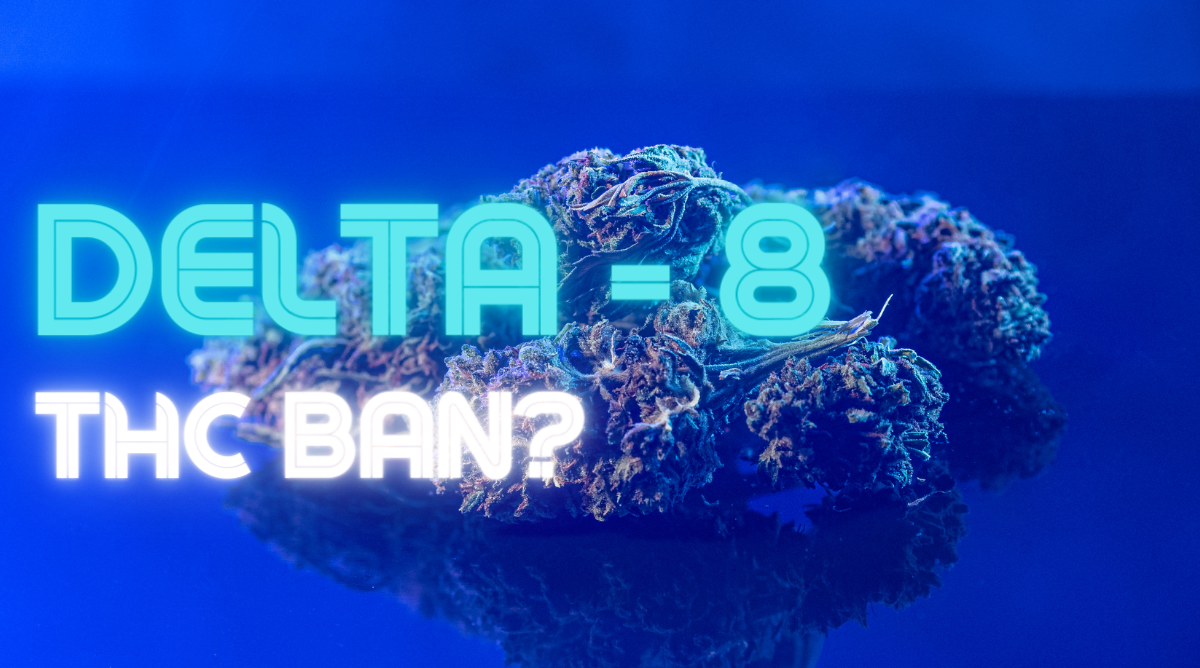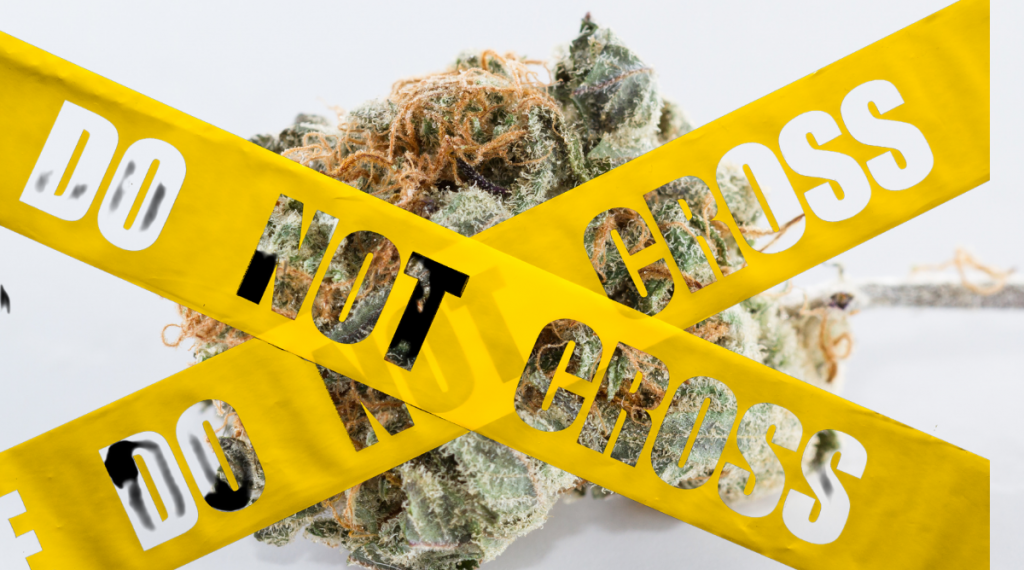
When American lawmakers changed the classification of hemp, it legalized CBD products. Hemp wouldn’t be categorized as cannabis from a legal perspective. As long as the potency of the hemp products for consumption stayed under 0.30% potency. And Delta-8 arguably belonged in that category.
Hemp has always been a ‘brother from another mother’ compared to cannabis. It’s difficult to get any psychoactive effect from hemp. The low THC ratio means that you would have to consume a lot of it to get a noticeable high.
The Farm Bill of 2018 was a big deal. For the first time since prohibition in the 1937 Marihuana Tax Act and the 1970 ban under the Controlled Substances Act, hemp was recategorized. And products that would have been prohibited before, were now open to manufacturers. For all sorts of consumer and industrial products; not the least of which was CBD supplements.
That also created a boom for another hemp-related product; Delta-8. Because before the Farm Bill of 2018, it was illegal to produce hemp with very few exceptions. And hemp that contained any THC whatsoever, was classified with the same restrictions as marijuana. Even in legalized states, hemp couldn’t cross the border into another state or be sold nationally.
There is another problem brewing with Delta-8. Fed by consumer demand for a mental health boost (without the body or brain high), regulators are scrambling to implement restrictions. But if Delta-8 is not intoxicating like THC, what is all the fuss about? Let’s dive in!
It’s not marijuana, but it has still created a major buzz in the past year. Delta-8 has been marketed as “all the wellness benefits of cannabis, without the high”. And there are many reasons why this is appealing for people. There is a perception that Delta-8 can create the same euphoria as THC, but without the impairment.
People are snapping up Delta-8 as a supplement at dispensaries, and also at shops that aren’t licensed cannabis dispensaries. You can take Delta-8 in the following forms:
Read: “Delta-8 and Delta-9 Have Very Different Effects”
So, why is this a big deal to American consumers? With depression and anxiety levels during the pandemic at an all-time high, some people are looking for effective relief. There is a fatigue that mental health experts claim many people may be experiencing. An emotional drain, navigating the trauma of the global COVID-19 pandemic.
You can’t smoke or ingest THC and drive to work. Your work performance (and safety) could be impacted by impairment. How then should you manage your symptoms of extreme stress, depression, or anxiety? Because that also affects your daily life and productivity.
That is the core reason why Delta-8 is exploding in popularity. The potential to get a much-needed mental health boost. Without the impairment that comes with consuming marijuana. Sounds pretty good, right? That’s why it’s flying off the shelves. And cannabis and hemp regulators aren’t happy about that.
There is an elephant in the room when it comes to mental health and marijuana. People who have conditions like ADHD, Generalized Anxiety Disorder (GAD), or Depression have experienced symptom relief from using cannabis.
Specific strains (primarily Sativa dominant) can lift the general mood. Some strains of marijuana reportedly have an energizing effect also. So, when your intake the euphoric types of cannabis, you can feel some of the following psychoactive effects:
When some people experience moderate to severe types of anxiety, it’s very distressing. They can’t relax because there can be multiple narratives in their head that cause apprehension. Sometimes even paranoia about things that haven’t occurred but may happen. That narrative gets exhausting, and it can cause mood fluctuations that impact social and work life.
In the era of ‘it’s okay not to be okay,’ people are looking for more gentle and natural ways to nurture their mental health. And Delta-8 seems to be one choice that many Americans are making because it is affordable. You don’t need a prescription for it, and it doesn’t seem contraindicated with other prescription medications.
If taking Delta-8 would give you that emotional lift, would you be willing to try it? Many people are apprehensive about taking prescription drugs for mental health needs, including anti-depressants and anti-anxiety medications, which can have uncomfortable side effects. But Delta-8 (to present knowledge) doesn’t have any of those side effects. And it doesn’t leave you feeling drained or drowsy after it has worn off.
It’s not hard to understand why Americans would be interested in Delta-8. Just over 16 million Americans have been diagnosed with depression (6.7%). But the Anxiety & Depression Association of America (ADAA) reports that more than 40 million adults are diagnosed with moderate to severe anxiety (18%). And that was before the pandemic started.
It is not that there’s anything wrong with Delta-8. It is that hemp-derived low THC products are in high demand. Pardon the pun because they don’t get anyone high with a low THC content. But Delta-8 cannabidiol can provide a number of other benefits.
Cannabidiol can help reduce inflammation. This doesn’t sound like a big deal until you consider that almost every chronic disease and disorder is linked to inflammation. And controlling inflammation, or managing it better, is key to reducing many symptoms.

There is a crackdown on Delta-8 that is picking up momentum in the United States even if the motivations and reasoning behind it aren’t particularly clear. Or consistent; they are vague at best and seem to have more to do with concerns about regulating it rather than whether it needs to be overly regulated at all.
According to an article in Hemp Industry Daily, Delta-8 is still categorized as THC and not hemp. While The Farm Act stated that all hemp-derived products that fall under the 0.30% THC limit are legalized, Delta-8 is still categorized as a Schedule 1 drug. That means it falls under the Controlled Substances Act.
In 2020, the U.S. Drug Enforcement Administration (DEA) created an interim rule about Delta-8 and Delta-10 THC. The ruling stated that “all synthetically derived (THC) remain Schedule 1 controlled substances”. This directly contradicted the legislation passed in The Farm Act of 2018.
Cannabidiol is processed to become Delta-8. So, by definition, that processing makes it a synthetically manufactured drug. And excludes it from raw hemp extraction. This differentiates CBD from Delta-8 in terms of legality.
That also means that any company manufacturing products with Delta-8 needs a THC cultivation or processing license. And comply with the regulatory standards. In response, some states have moved to ban or draft new regulations about synthetic THC. And that means amending state legislation regarding hemp products.
While laws for medical cannabis took years in most states and ample clinical studies and research, there is not the same data available for Delta-8. So far, eleven (11) states have already banned Delta-8, while other states are in the process of revising hemp laws. In 2021, Delta-8 THC was banned in Utah, Rhode Island, Montana, Mississippi, Iowa, Idaho, Colorado, Delaware, Arizona, Alaska, and Arkansas.
Manufacturers will not be allowed to produce or retail any Delta-8 THC products. The saving grace may be the decriminalization of cannabis in The MORE Act. Otherwise, there may be a long legislative journey ahead to study, draft new laws and legalize Delta-8 and Delta-10 THC. And remove it (or change categorization) in the Controlled Substances Act.
Featured Image: Canva
No Information on MarijuanaDoctors.Com should be used to diagnose, treat, prevent or cure any disease or condition. You can view our Full Disclaimer here.